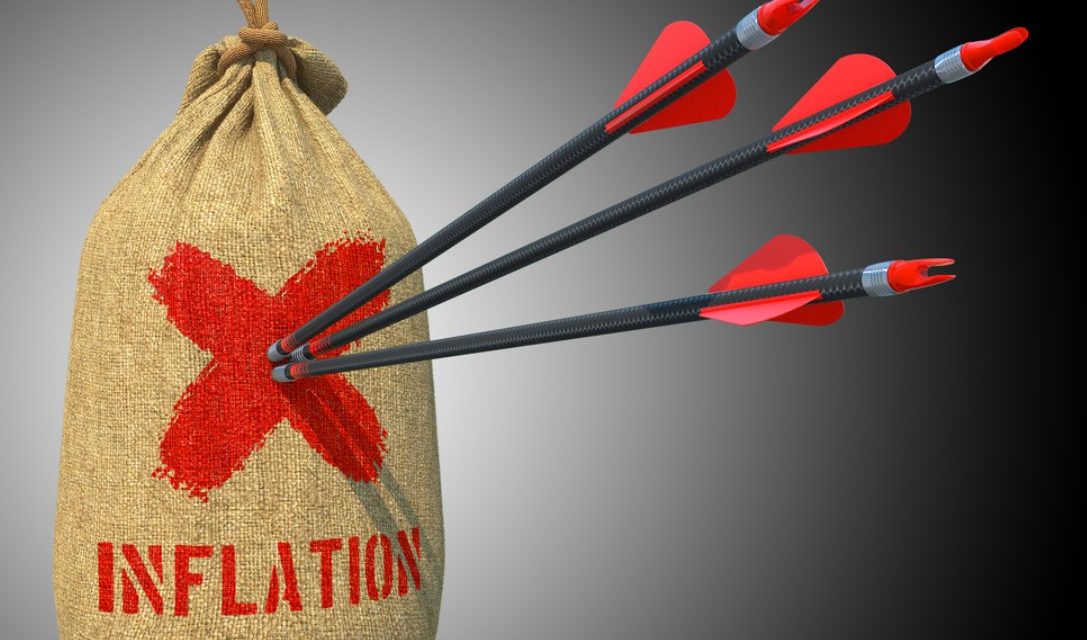After some time of experiencing a slow down in the area of inflation, we are firmly back into periods of accelerating inflation. Year on year inflation is up for the second consecutive month while month on month inflation has hit a 13 month high. With that in mind, we need to start thinking about how to preserve the value of our money in these inflationary times. We will discuss the options available, looking at their pros and cons.
Stock market
Stock markets in general tend to be a very good inflation hedge all over the world. It makes sense, if inflation is an increase of prices in an economy then the very businesses that raise prices of their products are likely to be shielded from the effects of inflation. Their valuations will tend to compensate for inflation. In Zimbabwe, the stock market has not only compensated for inflation but has comfortably beaten it in recent times. It doesn’t matter which measure of inflation you use between the Consumer Price index (ZimStat) and the parallel market rate, you can see in the graph below (using October 2020 as a base month making all values 100) just how well the ZSE has done. And that’s just the average, with a little skill and experience such rates of return are beatable. Stock market-linked investments such as unit trusts also fit in here. Products like Unit Trust Funds and the ETF take some of the complexity and donkey work out of investing in stock markets.

Commodities
In times of inflation, there is a concept known as real value accounting. It’s a fancy way of saying we value things based on something we know has a stable value because of its utility. This is the way the US dollar is viewed in Zimbabwe. However, the US dollar is not the only real value unit. Items like gold internationally and maize, goats and other items locally are used as real value units. All of these things can be grouped as commodities. As we’ve already established in inflationary environments where commodities become real value units they become measures of the value of money rather than money indicating their value. There are a lot of commodities you can consider in this regard that serves this very purpose. Commodities, depending on which you go with lack divisibility and may involve additional expertise such as rearing livestock or identifying gold.
Cryptocurrency
Cryptocurrency is a divisive topic in this regard. Many cryptocurrencies are accused of having no intrinsic value and this is true. However, some cryptocurrencies do have intrinsic value. Which cryptocurrency you choose to use as an inflation hedge is something you need to look at very carefully. That said cryptocurrencies, in general, have done well as inflation hedges in recent times. Even Bitcoin with its downs and ups is up roughly 110% this year at the time of writing. This is important as we compare to a commodity like gold which has not fared well in 2021 down 3.73% over 12 months but up 41.31% over 5 years at the time of writing. Cryptocurrencies of course have two major drawbacks, complexity and access. For complexity, there is no solution but to understand the world of crypto. As for access issues you may want to look at the more accessible crypto options, even our local Zimbocash has a positive Year to date return of 785.25% (04 November 2021) which is higher than the change in the parallel market rate of 70% at the end of September.
Real estate
Real estate is another great inflation hedge. Property prices tend to move with the rate of inflation and will adjust for changes in the value of money. Property prices in Zimbabwe do this and then some. Bearing in mind that rental income is also a viable way to make money from real estate. Rental prices in Zimbabwe though low are just about universally pegged to the US dollar. This means whether your goal is to make money from rental income or disposal of the property, real estate is a very good inflation hedge. Of course, the property has a very high buy-in or minimum threshold so this is suitable for people who are trying to protect large amounts of money from inflation.
Cash
This is a strange one to have on this list and that’s why I saved it for last. Hear me out. Traditionally in times of inflation cash represents a bad inflation hedge, fair enough. However, when we look specifically at inflation in Zimbabwe there are two important things we should be aware and both are visible in the graph above with both the Consumer Price Index and Parallel market exchange rate. Firstly, change in parallel market rates is a decline in the value of the Zimbabwean dollar against the US dollar. So if you buy US dollars with your Zimbabwean dollars you are already hedging against inflation. Secondly and more importantly the graph shows us that as inflation has started increasing the parallel market rate has started increasing at a rate that outpaces CPI. Now sure we can have a chicken and egg discussion here as to which causes which or we can simply accept that US dollars protect your money from inflation in Zimbabwe. With the RBZ allowing citizens to buy US dollars from Bureau de Changes at the official market rate which is just below 100, at US$50 per week that’s US$200 a month for you as an individual. This was recently updated to allow a once-off purchase of US$100 per month. However, there are considerations of security if you want to keep physical cash and banking if you want to keep the money with an institution.








